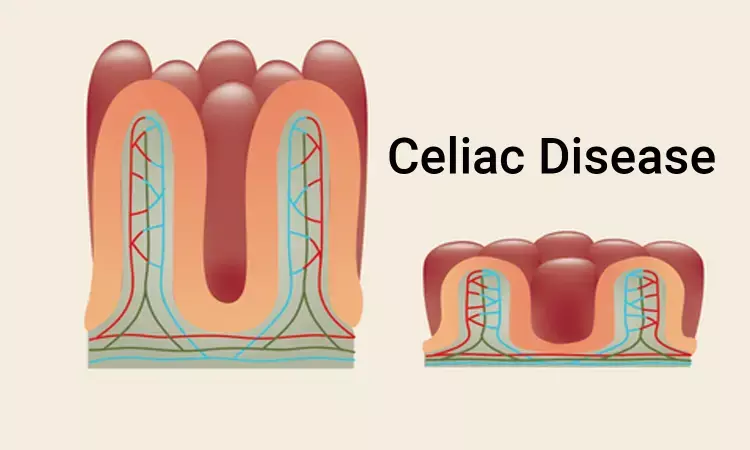- Home
- Medical news & Guidelines
- Anesthesiology
- Cardiology and CTVS
- Critical Care
- Dentistry
- Dermatology
- Diabetes and Endocrinology
- ENT
- Gastroenterology
- Medicine
- Nephrology
- Neurology
- Obstretics-Gynaecology
- Oncology
- Ophthalmology
- Orthopaedics
- Pediatrics-Neonatology
- Psychiatry
- Pulmonology
- Radiology
- Surgery
- Urology
- Laboratory Medicine
- Diet
- Nursing
- Paramedical
- Physiotherapy
- Health news
- Fact Check
- Bone Health Fact Check
- Brain Health Fact Check
- Cancer Related Fact Check
- Child Care Fact Check
- Dental and oral health fact check
- Diabetes and metabolic health fact check
- Diet and Nutrition Fact Check
- Eye and ENT Care Fact Check
- Fitness fact check
- Gut health fact check
- Heart health fact check
- Kidney health fact check
- Medical education fact check
- Men's health fact check
- Respiratory fact check
- Skin and hair care fact check
- Vaccine and Immunization fact check
- Women's health fact check
- AYUSH
- State News
- Andaman and Nicobar Islands
- Andhra Pradesh
- Arunachal Pradesh
- Assam
- Bihar
- Chandigarh
- Chattisgarh
- Dadra and Nagar Haveli
- Daman and Diu
- Delhi
- Goa
- Gujarat
- Haryana
- Himachal Pradesh
- Jammu & Kashmir
- Jharkhand
- Karnataka
- Kerala
- Ladakh
- Lakshadweep
- Madhya Pradesh
- Maharashtra
- Manipur
- Meghalaya
- Mizoram
- Nagaland
- Odisha
- Puducherry
- Punjab
- Rajasthan
- Sikkim
- Tamil Nadu
- Telangana
- Tripura
- Uttar Pradesh
- Uttrakhand
- West Bengal
- Medical Education
- Industry
Celiac disease may increase risk of premature death finds JAMA study

Researchers at Karolinska Institutet in Sweden and Columbia University have found that people with celiac disease have increased risk of dying prematurely.Celiac disease was linked to increased risk of death from cardiovascular disease, cancer and respiratory disease.
This is despite increased awareness of the disease in recent years and better access to gluten-free food.
The new study has published in the prestigious journal JAMA.
Previous studies have demonstrated a modest but persistent increased risk of premature death in patients with celiac disease. However, in recent years, more people with milder disease have been diagnosed and gluten-free food is widely available. It has therefore been hypothesised that celiac disease may no longer be associated with an increased risk of death.
Using nationwide data from Sweden's pathology departments, linked to national healthcare registers, researchers at Karolinska Institutet and Columbia University examined almost 50,000 patients with celiac disease and their risk of death.
Compared with controls, overall mortality was increased by 21 percent in those with celiac disease. The relative increase in mortality risk was present in all age groups and greatest in those diagnosed in the age range of 18 to 39 years old.
"We have known that celiac disease can cause a number of long-term complications that can impact life expectancy, but this study examines an entire population in the most recent era, at a time when awareness of celiac disease and access to gluten-free food is widespread," says Benjamin Lebwohl, Director of Clinical Research at the Celiac Disease Center at Columbia University and first author of the study. "Despite this, we found that celiac disease is associated with long-term consequences."
Individuals with celiac disease were at increased risk of death from cardiovascular disease, cancer and respiratory disease. Compared with controls, the overall mortality risk was greatest in the first year after diagnosis but the risk increase persisted beyond 10 years after diagnosis. The increased risk was present also in patients diagnosed during recent years (2010-2017).
"Celiac disease is characterised by inflammation, which is generally bad for your health," says corresponding and last author, Jonas F Ludvigsson, senior paediatrician at Örebro University Hospital and professor of clinical epidemiology at the Department of Medical Epidemiology and Biostatistics at Karolinska Institutet. "I am therefore not surprised that we found an increased mortality for a number of causes of death in individuals with celiac disease."
The fact that the relative risks were highest in the first year of follow-up can have several explanations, says Jonas F Ludvigsson.
"The intestinal inflammation is often most intense around diagnosis, and before a gluten-free diet has had an effect on mucosal healing. Another possible explanation is that the celiac diagnosis may have been made in patients who were very ill from other causes."
In separate analyses, the authors adjusted for socioeconomic status and comorbidity but the increased mortality risk for people with celiac disease remained.
The research was funded by the Swedish Research Council, the Celiac Disease Foundation and the Louis and Gloria Flanzer Philanthropic Trust. Jonas F Ludvigsson has previously coordinated another study that received funding from the pharmaceutical company Janssen. No other potential conflicts of interest are reported in the paper.
For more details click on the link: http://dx.doi.org/10.1001/jama.2020.1943
Hina Zahid Joined Medical Dialogue in 2017 with a passion to work as a Reporter. She coordinates with various national and international journals and association and covers all the stories related to Medical guidelines, Medical Journals, rare medical surgeries as well as all the updates in the medical field. Email: editorial@medicaldialogues.in. Contact no. 011-43720751
Dr Kamal Kant Kohli-MBBS, DTCD- a chest specialist with more than 30 years of practice and a flair for writing clinical articles, Dr Kamal Kant Kohli joined Medical Dialogues as a Chief Editor of Medical News. Besides writing articles, as an editor, he proofreads and verifies all the medical content published on Medical Dialogues including those coming from journals, studies,medical conferences,guidelines etc. Email: drkohli@medicaldialogues.in. Contact no. 011-43720751


